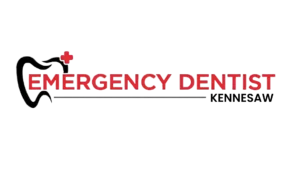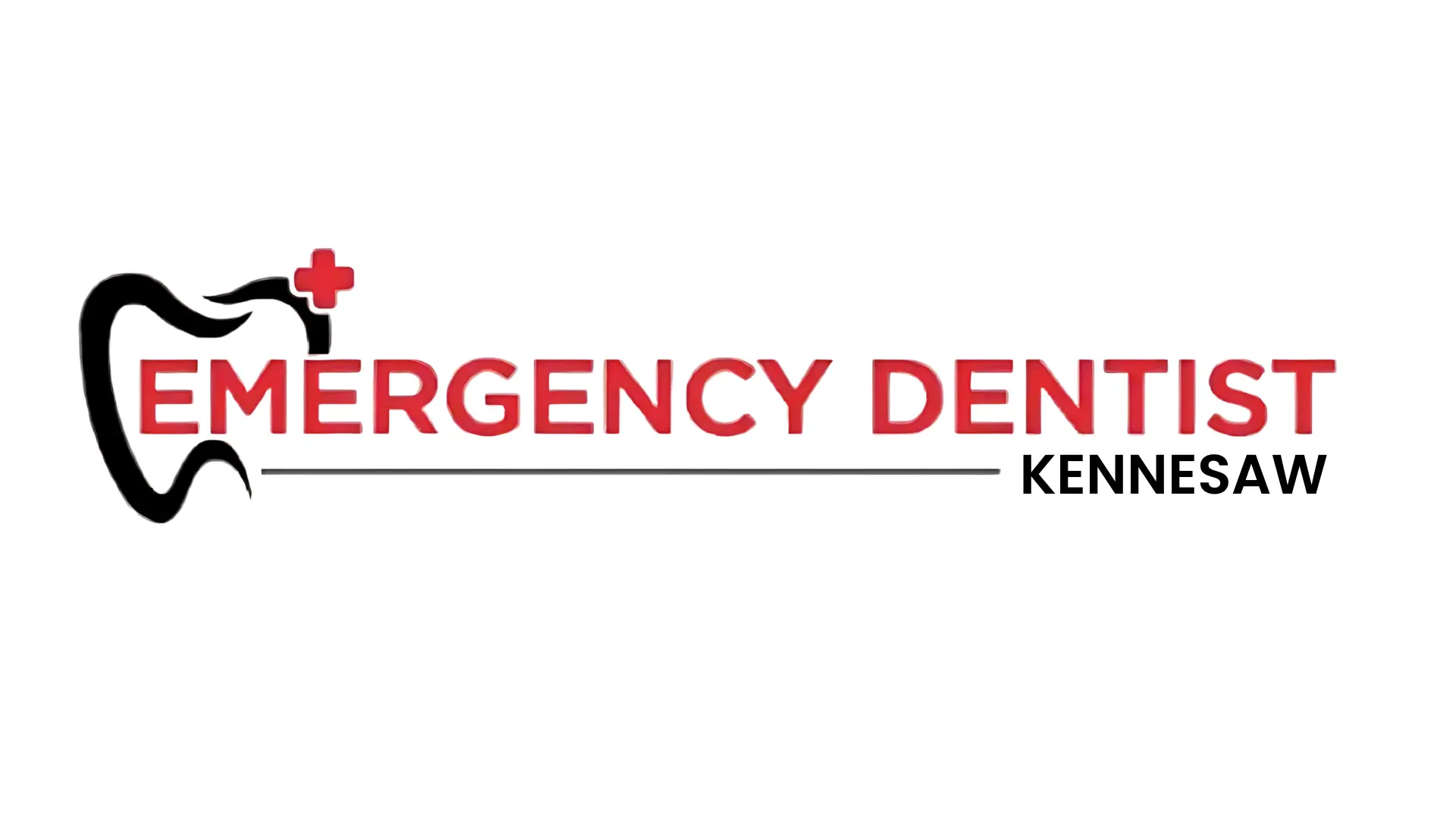Smoking After Tooth Extraction: Healing Process & Care
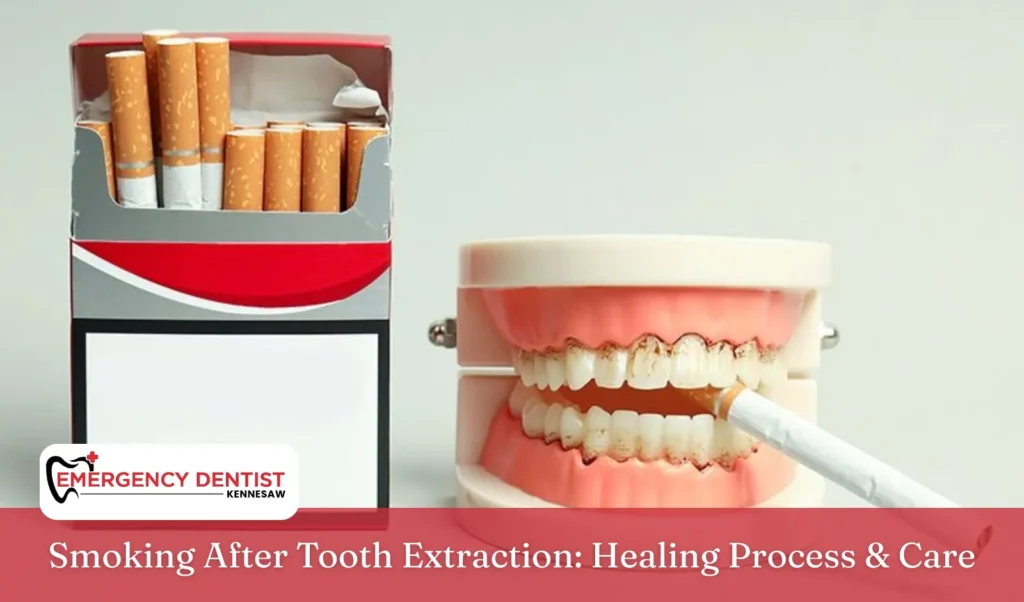
Having teeth extracted is never easy, and what you do afterward plays a major role in how quickly and comfortably you recover. Many patients ask: when can I smoke after tooth extraction? For those healing from a wisdom tooth extraction, another common question is: when can I smoke after wisdom tooth extraction? Whether you have a single tooth extraction or multiple teeth extracted, knowing how smoking after a tooth affects the healing process can help you avoid a painful condition like dry socket and protect your oral health.
Why You Should Avoid Smoking After Tooth Extractions
After tooth extractions, a blood clot forms at the extraction site. This clot shields the exposed bone and nerves while creating the foundation for proper healing. If the clot dissolves or loosens too soon, dry socket, also known as alveolar osteitis can develop.
Cigarette smoking and other tobacco products are among the biggest risks. The suction from inhaling can dislodge the clot, while the chemicals in cigarettes reduce circulation and slow tissue repair. This greatly increases the risk of complications during the post extraction recovery period, which is why dentists stress the importance of avoiding smoking.
When Can I Smoke After Tooth Extraction?
Most dentists recommend that patients avoid smoking for at least 72 hours after having teeth extracted. This allows the clot to stabilize and lowers the risk of infection or dry socket. Some patients ask if it’s safe after just 24 hours, but smoking that soon dramatically increases the risk of problems.
With a wisdom tooth extraction, healing typically takes longer. The sockets are larger, and the back of the mouth is harder to keep clean. Because of this, many dentists suggest waiting up to a week before smoking again.
So, how long after tooth extraction can I smoke? The safest answer is: wait as long as possible—at least three days, and ideally longer, to support proper healing.
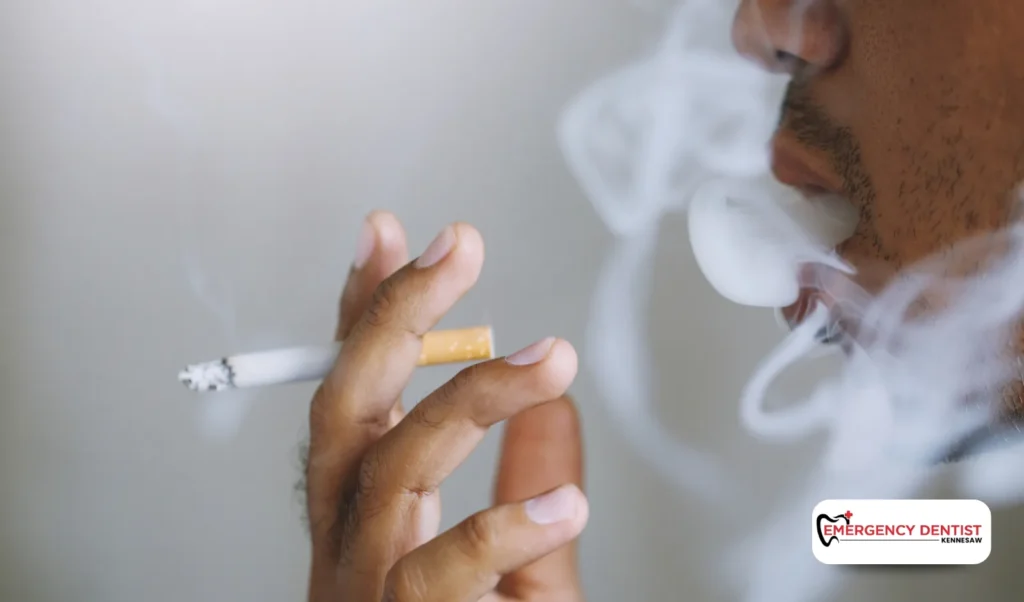
Risks of Smoking Too Soon
Smoking after tooth extraction exposes the sensitive extraction site to harmful toxins. Nicotine and carbon monoxide reduce oxygen in the bloodstream, slowing recovery. The heat and irritants from cigarette smoking or other tobacco products also inflame gum tissue, increasing the risk of infection.
The most serious issue is dry socket. Without the protective clot, bone and nerves are exposed, leading to severe pain that may radiate to the jaw, ear, or temple. Patients with alveolar osteitis often describe throbbing discomfort that makes eating and sleeping difficult. This painful condition not only delays the healing process but also requires additional dental care.
Tips for Safer Recovery
If you smoke, following these steps will give your mouth the best chance to heal:
- Avoid smoking for at least 72 hours. More time lowers your risks.
- Eat soft foods. Yogurt, mashed potatoes, and applesauce are gentle and protect the clot.
- Practice careful oral hygiene. Rinse with warm salt water and gently clean around the extraction site without disturbing it.
- Follow your dentist’s guidance. Every patient’s healing process is different, so rely on professional advice.
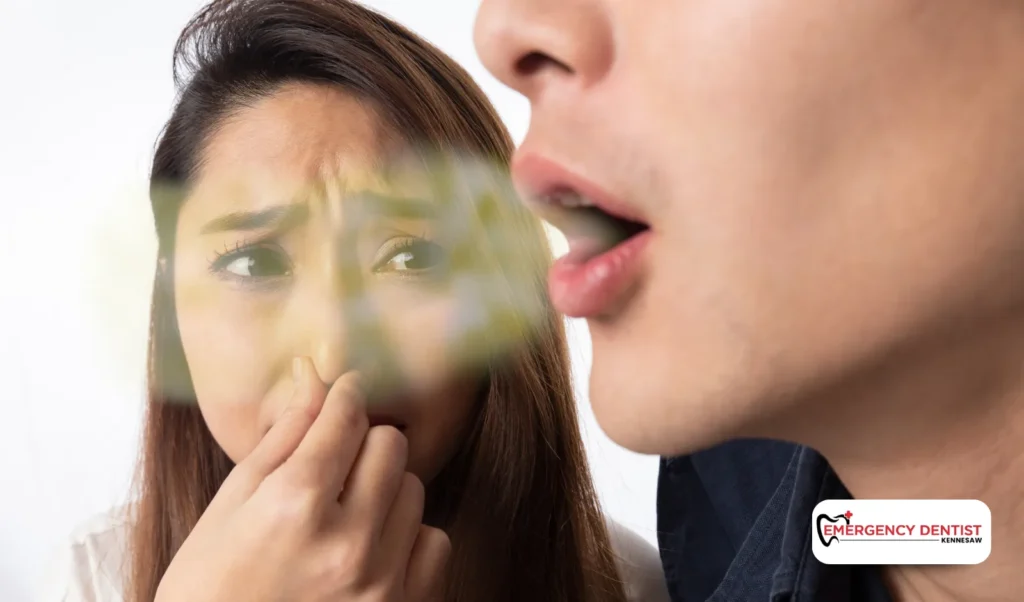
When to Contact an Emergency Dentist
Even if you avoid smoking, problems may still occur. If you notice severe pain, foul odor, or an empty-looking extraction site, you may have dry socket. In these cases, visiting an Emergency Dentist in Kennesaw is the best way to get relief and protect your oral health. Prompt treatment reduces pain, lowers the risk of complications, and helps you recover faster.
Conclusion
So, can I smoke after tooth extraction? Yes, but only after your mouth has had enough time to heal. Waiting at least 72 hours, and ideally longer, reduces the risk of dry socket. For wisdom tooth extraction, patients often ask: when can I smoke after wisdom tooth extraction? The safest choice is to wait at least three days, though more time always ensures proper healing.
By avoiding smoking and other tobacco products, eating soft foods, and keeping up with oral hygiene, you’ll protect your extraction site and support long-term recovery. If complications arise, seek help from an Emergency Dentist in Kennesaw. Taking these steps after tooth extractions helps you avoid a painful condition and maintain your overall oral health.
